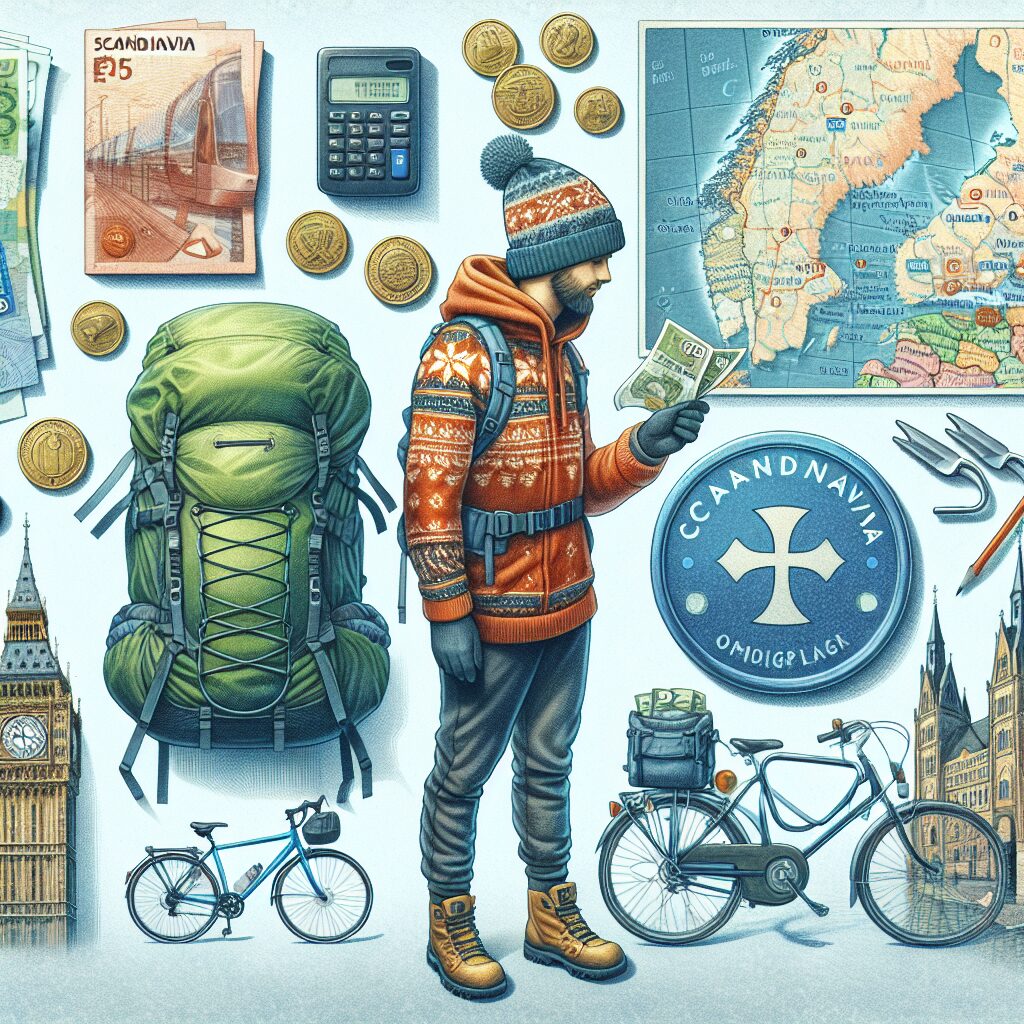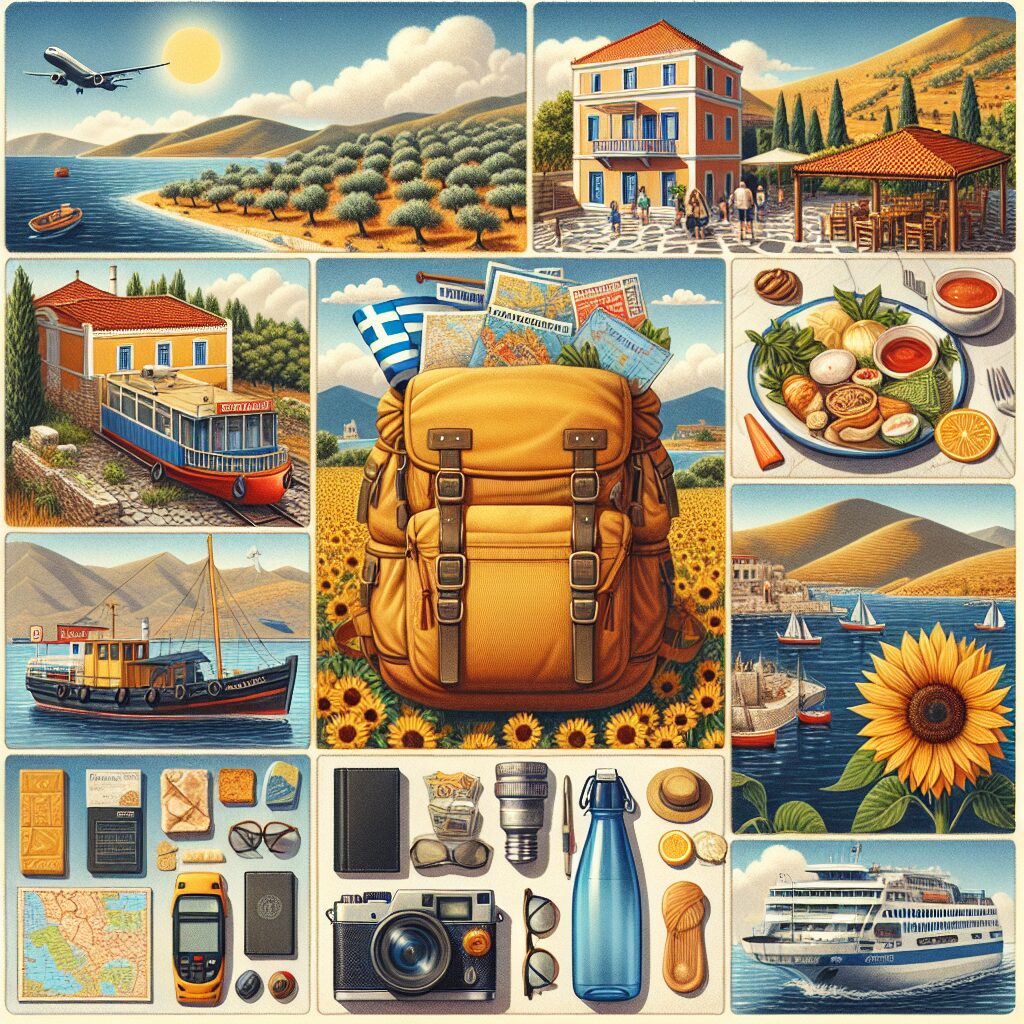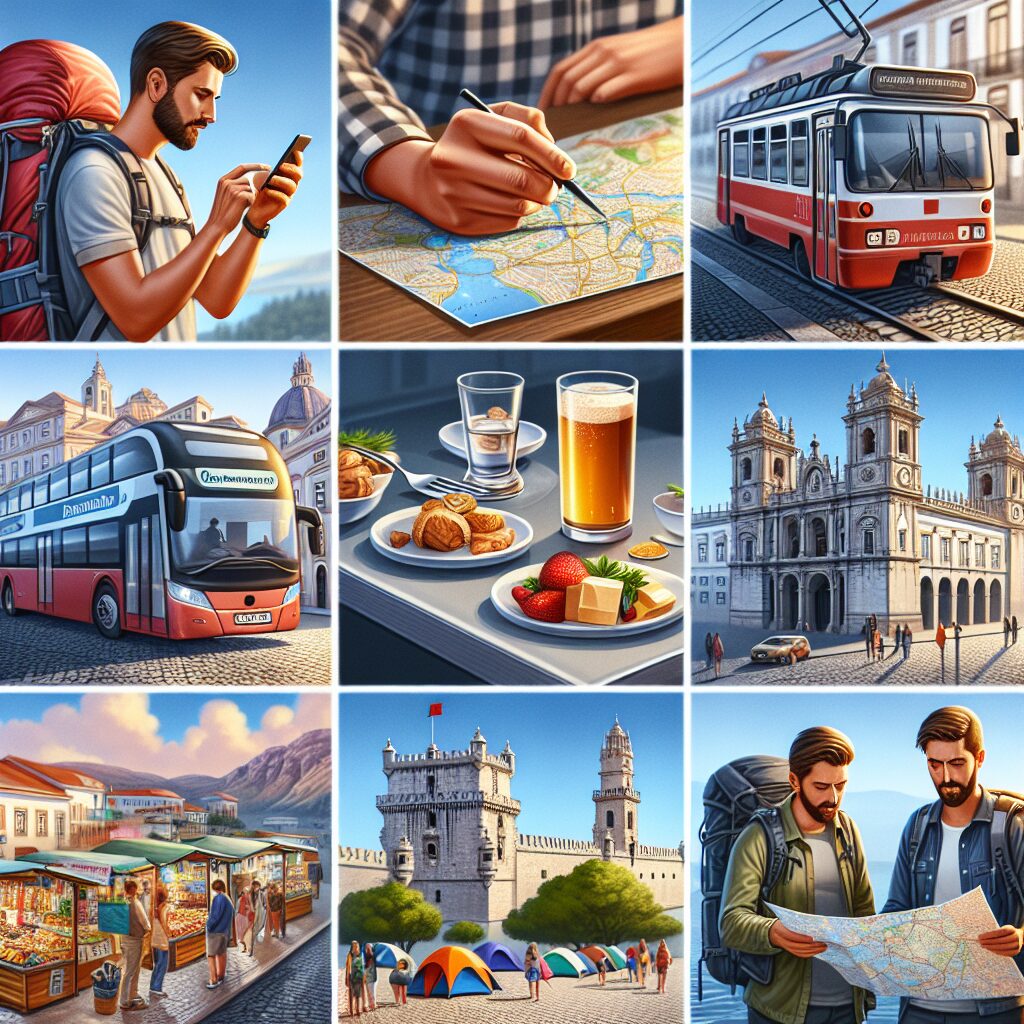Traveling through Europe encapsulates the dream of navigating a tapestry of diverse cultures, languages, and landscapes. Yet, for many, the thought of traversing this continent calls to mind daunting expenses – from towering hotel bills to gourmet dining. Contrary to popular belief, a European journey doesn’t have to drain your savings. Budget travel in Europe is not only possible; it’s a gateway to deeper cultural immersion and often, more memorable experiences. By embracing cost-saving strategies such as staying in hostels, using public transportation, and indulging in local eats, travelers can significantly cut costs while uncovering the authentic pulse of European life.
As we delve further into the art of budget travel across Europe, key takeaways will emerge to assist the aspiring globetrotter. Not only will we explore the practical steps required to stretch your euros, but we will also highlight the unique features of traveling economically – from the satisfaction of discovering hidden gems that are off the beaten path to the rewards of engaging more deeply with locals. Stay tuned as we guide you through essential tips such as mastering the art of slow travel, leveraging discount cards, and planning your itinerary to align with off-peak seasons – all designed to ensure that your European adventure is rich in experiences, yet gentle on your wallet.
Essential Insights
1. Embrace slower modes of transportation: Opting for buses or trains instead of flying doesn’t just save money — it also provides an opportunity to see more of the countryside and soak in the local atmosphere. Additionally, considering overnight buses or trains can save on a night’s accommodation.
2. Leverage accommodation alternatives: Instead of pricey hotels, look into hostels, Airbnb, or Couchsurfing for more affordable lodging options. Furthermore, staying in places with kitchen access allows travelers to cook their own meals, which can significantly reduce food costs.
3. Eat like a local: Avoiding tourist traps and dining where the locals eat can lead to big savings. Not only does this strategy offer a more authentic culinary experience, but street food and local markets also tend to be much cheaper than restaurants in popular tourist areas.
4. Prioritize experiences over souvenirs: Memories from experiences and adventures last much longer than physical items. Choose free or low-cost attractions, like hiking, visiting public parks, or attending local festivals, over expensive tours and souvenir shopping.
5. Plan and budget carefully: Researching destinations thoroughly allows travelers to find free or inexpensive attractions and understand local transportation systems. Keeping a close eye on spending with a daily budget prevents financial surprises and ensures that the trip remains cost-effective.
What Are the Most Cost-Efficient Strategies for European Travel?
Planning Your Itinerary Wisely
Designing a budget-friendly European travel plan begins with a strategic itinerary. Opt for visiting countries that are known for being more affordable, such as those in Eastern Europe, where you can enjoy rich cultures without the hefty price tag of Western European destinations. Also consider visiting during the off-peak seasons; accommodation and flights are often considerably cheaper, and you’ll avoid the crowds. Keep your itinerary flexible enough to take advantage of last-minute deals or to stay longer in cheaper cities that you enjoy.
Embracing Slow Travel
Slow travel not only allows you to immerse yourself more fully in the local culture, but it can also save you a lot of money. Staying in one place for an extended period often leads to discounted accommodation rates and gives you the chance to discover local markets and shops, which are usually cheaper than the tourist hot spots. Moreover, traveling less frequently means spending less on transport costs. Look into longer-term rentals through platforms like Airbnb, where you can often negotiate rates for month-long stays or even longer.
Utilizing Budget Transportation Options
Transportation can eat up a large portion of your travel budget, but there are several ways to keep these costs down. Budget airlines like Ryanair and EasyJet offer cheap flights between major cities but watch out for additional fees. Traveling overnight on long-distance buses or trains can double as a night’s accommodation. Consider purchasing rail passes, such as the Eurail Pass, if your trip covers several countries; they can offer significant savings over individual train tickets. Whenever possible, use public transport over taxis and try car-sharing services like BlaBlaCar for longer distances.
Accommodation Hacks for the Budget-Conscious Traveler
Accommodation is another major expense, but there are numerous ways to save. Hostels are a tried-and-true option for the budget traveler and are great places to meet fellow travelers. Booking a dormitory bed will always be cheaper than a private room. For a more local experience, platforms like Couchsurfing or BeWelcome allow you to stay with locals for free. If you’re willing to work a few hours a day, Workaway or WWOOFing provide free accommodation in exchange for work, often on farms or in hostels.
Saving on Food and Dining
Eating out in Europe can be expensive, but with a few tricks, you can enjoy the local cuisine without breaking the bank. Seek out local markets and grocery stores to put together picnics rather than eating at restaurants. Many cities also have affordable street food options that are both delicious and cheap. Look for ‘menu of the day’ offers or fixed-price menus which are common in many European restaurants. Additionally, cooking facilities are often available in hostels, giving you the chance to cook your own meals.
Free Attractions and Entertainment
Many European cities are treasure troves of free attractions. Museums in London, for instance, do not charge admission, and cities like Rome have days when public monuments and museums are free. Take advantage of these opportunities. Also consider walking tours, which are often ‘pay what you can’ and a great way to see the city. Many cities also offer free outdoor entertainment, such as concerts, especially during the summer months. Always check local event listings to find out what’s on during your stay.
Keeping Communication Costs Low
Avoid hefty roaming charges by purchasing a local SIM card for your phone. Most European countries offer prepaid SIM cards which are much more affordable than using your home network. Many cafes and public spaces offer free WiFi, allowing you to use internet-based communication services like WhatsApp, Skype, or Messenger to call home without incurring any charges.
Can You Share Top Budget Tips for European Travel?
- Arrive with an open mind and flexible plans to take advantage of deals and unexpected opportunities.
- Consider traveling to lesser-known destinations that offer similar experiences at a fraction of the cost.
- Take night trains or buses to save on one night’s accommodation while moving from one city to another.
- Remember that regional and discount airlines can save you money, but always read the fine print for extra fees.
- Embrace picnics with local market finds for a cheap and memorable dining experience.
- Use local tourist cards for discounts on attractions, dining, and transportation.
- Stay with locals for free through Couchsurfing, or exchange work for accommodation through Workaway.
- Take the road less traveled and explore small towns and rural areas for a true budget-friendly adventure.
- Keep connected with local SIM cards and utilize Wi-Fi hotspots to avoid expensive roaming charges.
- Always ask for student, youth, or other relevant discounts that you may be eligible for.
What are the cheapest modes of transportation in Europe?
Traveling through Europe on a budget often means taking advantage of the continent’s extensive public transportation network. Buses, such as those operated by FlixBus or Megabus, are some of the most affordable options for long-distance travel. Regional trains and budget airlines can also offer good value, especially if you book in advance or take advantage of sales.
How can I find budget-friendly accommodation in Europe?
Budget travelers can find affordable places to stay by using websites like Hostelworld to book hostels, which often have the option of shared dormitory rooms for lower prices. Additionally, platforms like Airbnb can offer budget rooms or apartments. Camping and Couchsurfing are other budget-friendly options, particularly during the warmer months.
Are there any affordable travel passes for touring Europe?
Yes, there are multiple travel passes that can help save money. The Eurail Pass, for instance, allows unlimited train travel within and between many European countries for a set number of days. Similarly, city passes in various European cities can offer unlimited public transit and discounts on attractions.
How can I save on food while traveling through Europe?
Saving on food costs can be achieved by shopping at local supermarkets and preparing your own meals. Street food and local markets are also good options for inexpensive and authentic dishes. Additionally, choosing accommodations with kitchen facilities can dramatically reduce your dining expenses.
Can I travel Europe on a budget during peak season?
While traveling during off-peak seasons is generally less expensive, budget travel in peak season is possible with careful planning. Booking flights and accommodations well in advance, choosing lesser-known destinations, and looking for deals and discounts can help keep costs down even during popular travel times.
What are the best ways to save money on attractions and activities in Europe?
Many European cities offer free walking tours which only expect tips in exchange for the guide’s time. Additionally, many museums and attractions have special days or hours when admission is free or discounted. Investing in a city pass or a tourist card can also provide significant savings for multiple attractions.
Is it cheaper to fly between countries or take the train?
This depends on the distance and your travel preferences. For longer distances or less accessible destinations, budget airlines might be cheaper and faster. For shorter distances or when traveling between well-connected cities, taking the train can be more cost-effective and a more enjoyable way to see the countryside.
How does staying with locals impact my travel budget?
Staying with locals through Couchsurfing or homestay programs can significantly reduce accommodation costs. Moreover, locals might share insider tips on cheap eats and free activities that are not widely known to tourists, which can further stretch your budget.
What should I know about handling money and avoiding fees?
It’s wise to use a bank card that doesn’t charge international transaction fees and to withdraw cash at ATMs instead of currency exchanges to get the best rates. Also, informing your bank about your travel plans can prevent your card from being blocked for suspicious activity.
Can I work or volunteer in exchange for accommodation or food?
Yes, opportunities such as WWOOF (World Wide Opportunities on Organic Farms) or Workaway may provide accommodation and sometimes food in exchange for a few hours of work per day, which is an excellent way to stretch your travel budget and immerse yourself in the local culture.
Final Thoughts on Traveling Through Europe on a Budget
Exploring Europe on a budget is a rewarding challenge that is entirely feasible with the right strategies and resources. From transportation hacks like using bus networks and travel passes to finding unique accommodation through hostels and local stays, there is no shortage of ways to save money. By embracing the mindset of a savvy traveler—planning ahead, being flexible, and taking advantage of free or discounted cultural experiences—one can enjoy the richness of European travel without breaking the bank. Important is to remember that the essence of budget travel lies in the experiences gained rather than the money spent. Every corner of Europe offers an array of cultural riches that can be enjoyed on any budget, so long as you’re willing to look beyond the typical tourist experience.
Ultimately, traveling on a budget does not mean missing out. It opens doors to more authentic interactions, deeper cultural immersion, and the ability to extend your journey. It’s about making informed choices and prioritizing what’s truly important to you. With a spirit of adventure and resourcefulness, a European adventure can be as affordable as it is unforgettable. Keep these tips and tricks in mind, and embark on your European excursion with confidence and excitement, knowing that financial constraints do not have to limit the scope of your explorations and discoveries.







